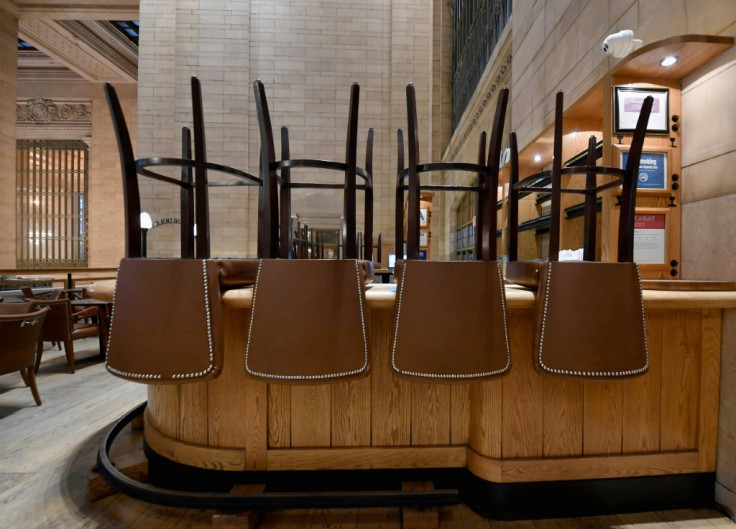How to Fix NYC's Hospitality Biz: A Talk with Andrew Rigie


The hospitality business has long been a massive economic machine in New York City, a place so well known for its energy, 'round the clock eateries, and nightlife that it's nicknamed the city that never sleeps. And New York natives are far from the sector's sole support: Approximately 66.6 million visitors came to New York City in 2019 and spent over $46.6 billion on restaurants and hotels, along with shops and cultural institutions, according to data from NYC & Company, the city's official marketing and tourism agency.
The NYC restaurant industry alone accounts for about $50 billion in sales annually, with its more than 24,000 bars and restaurants employing over a quarter of a million people, as noted by the New York City Hospitality Alliance, a nonprofit association that represents the local restaurant and nightlife industry.
For restaurant and bar owners in New York City, the Covid-19 pandemic has been particularly devastating, shedding about two-thirds of its workforce during the shutdown - roughly 243,000 jobs - according to data released last month by the U.S. Bureau of Labor Statistics. The layoffs have been compounded by the fact that employers in the restaurant and bar industry were unable to pay out health benefits and sick leave to their employees, erasing any social safety net.
And while the federal government's Paycheck Protection Program (PPP) has provided some much-needed relief for small businesses, it's been less effective for the hospitality industry than for other industries. Andrew Rigie, executive director of the New York Hospitality Alliance, notes that while some small businesses have used the forgivable PPP loan to keep employees working, a restaurant or bar often doesn't have this option.
"When industries were shutdown, there were certain sectors where you could work remotely," he says. "The vast majority of the restaurant and nightlife businesses don't exist if the on-premise operations are shut down. If you're a cook or bartender, you're not working remotely. It didn't make much sense to pay people not to work."

Managing a Crisis
Rigie and the New York Hospitality Alliance have been working with Senator Chuck Schumer and of New York City's delegation of Congressional Representatives in an effort to enact changes to the PPP program. One such change would be to allow restaurants and bars to use much more of the loan to pay rent and utilities, and still be eligible for forgiveness (they're only allowed to use 40% of the funds to those non-payroll-related ends currently).
"Rent is the biggest looming crisis because there's no way a small business will be able to pay multiple months of missed rent anytime soon, especially when you have the reduced- occupancy requirement right now," Rigie says. "And then we don't know when the dining public will have the disposal income and confidence to eat out like they used to, so it's challenging for business owners to plan for the future when there's so much economic uncertainty. It breeds a lot of fear and concern."
Governor Andrew Cuomo and the state of New York have made efforts to help, such as placing a moratorium on evictions and suspending liability enforcement, which "is critically important to small businesses," Rigie says. Essentially, though, "these are band-aids when we need open heart surgery," he says; cities and states can unfortunately only do so much to aid business owners. "We need a Marshall Plan or policies of comparable size" -- referring to the post-World War II recovery program that the U.S. enacted that transferred billions of dollars to Western Europe to help its economies bounce back. In other words, American eateries are going to need more help from the federal government in order to make it.
Some of that help has already come in the form of extending the application deadline for PPP loans. There's also a bill introduced in Congress to help with business-interruption insurance claims, which has been a source of controversy during the pandemic. But Rigie would like a more direct, and comprehensive, boost for those in the hospitality biz. His ultimate dream: to have the "federal government come in and say we're going to make you whole or close to whole until it is safe to eat and drink indoors at 100% occupancy."
Currently, internal dining and drinking remain forbidden at NYC restaurants and bars. A few weeks ago, they were allowed to offer sit-down service, but only in the open air. Rigie argues that while this limited re-opening represents progress, it does not lead to a sustainable business model. He notes that weather plays a factor in how many people will eat outdoors, and that most establishments won't make up the seats they lose indoors, no matter how many sidewalk tables they add.
And then there's the problem of reduced consumer demand. More people working from home now it means they aren't grabbing coffee in the morning, getting lunch in the afternoon, or having happy-hour drinks with colleagues or clients after work. And, of course, New York's quarantine rules for visitors from 22 states, along with a national disinclination for travel, means no return of the tourist trade anytime soon.
Needed: A New Long-Term Plan
Even more than current aid, however, Rigie says that a plan needs to be put in place that will help small businesses should another crisis arise - or if a second wave of Covid-19 hits New York later this year, which many health experts are expecting to happen.
"The failure to enact comprehensive long-term policies to support restaurants means that the vast majority of business owners can't plan out much more than a few days ahead," he says. "When the federal, city, and state governments mandate that restaurants and bars need to shut down due to the pandemic, that very same government needs to provide the support so that these businesses stand a chance for survival."
Ultimately, Rigie wants to see a more cooperative relationship between the government and the hospitality industry, which would include enacting regulations and policies that better support small businesses.
There's an "old saying 'don't let a good crisis go to waste' and so I hope we seize the moment to not only deal with the immediate crisis at hand, but to also use the momentum to fix so many of the systemic problems that challenged small businesses before the pandemic," he says. "Let's come out of this with a stronger and more resilient business than before."
© Copyright IBTimes 2024. All rights reserved.





















